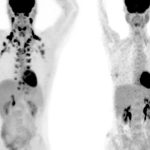
Patients with chronic kidney disease who stop using a class of common blood pressure medications may lower their risk for dialysis, but they also raise their odds of cardiovascular disease, a new study finds. The blood pressure medicines in question are called renin-angiotensin system inhibitors (RAS inhibitors), which include both ACE inhibitors and angiotensin II receptor blockers (ARBs). Not sure if you take one of these drugs? ACE inhibitors typically have “pril” as the last syllable in their name (for example, benazepril, captopril or enalapril) while ARBs typically end in “sartan” (candesartan, losartan and valsartan, among others). All of these medicines are commonly used to treat high blood pressure, cardiovascular disease, heart failure and chronic kidney disease, but how safe they are for patients with chronic kidney disease is a matter of debate. “The use of RAS inhibitors in patients with advanced chronic kidney disease is controversial, and many doctors deprescribe them,” study principal investigator Juan Jesus Carrero, professor at the department of medical epidemiology and biostatistics at Karolinska Institute in Sweden, said in an institute news release. “Rather than routinely discontinuing treatment, our results show that the issue is a complex one and that doctors must carefully weigh the protective effects of RAS inhibitors on the cardiovascular system against the potential harms on the kidneys,” Carrero said. According to study first author Dr. Edouard… read on > read on >

































